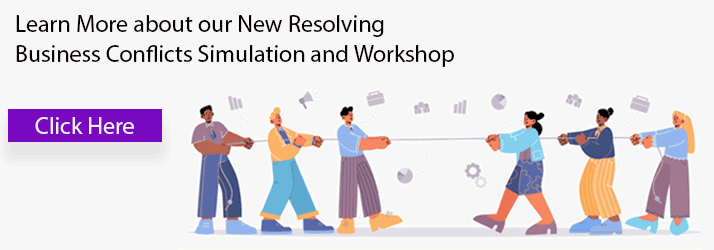Over the past several weeks the topic of “authenticity” has been showing up more and more in our work. In requests for content, within our business simulations, and in business leadership workshops more leaders are asking for help in developing the skill of authenticity. During this past weekend, I had the opportunity to start scripting a new business leadership simulation on coaching and the client has requested that we use Authenticity as one of the scoring mechanisms. Several of the other scoring metrics include Empathy, Accountability, and Developing Others.
our work. In requests for content, within our business simulations, and in business leadership workshops more leaders are asking for help in developing the skill of authenticity. During this past weekend, I had the opportunity to start scripting a new business leadership simulation on coaching and the client has requested that we use Authenticity as one of the scoring mechanisms. Several of the other scoring metrics include Empathy, Accountability, and Developing Others.
I will transparently share that at first, I was uncomfortable with these metrics, especially Authenticity. I know you can assess authenticity, but is it possible to teach it? Aren’t you as a human being either authentic or not? How do you train for it, especially in a business environment?
So, I did some research including conducting 15-minute interviews with three Fortune 1000 executives I trust and who I think are very authentic in their approach to business leadership. They were excellent conversations and provided three interesting insights into the answer to my question.
How to Develop Authenticity
Being authentic means that you act in ways that show your true self, what you believe in, and how you feel at all times rather than showing others only a particular side of yourself that you want them to see. That means to truly succeed at being authentic, you must first genuinely know who your true self is, and to do that it requires high levels of emotional intelligence, self-awareness, and mindfulness.
3 Tips to Develop Authenticity:
Explore your values
Integrity, transparency, and ethics are a good start to the process of developing authenticity. What are your values as a person? What is your “true north?” What are your values as a leader? In one of the coaching scenarios I just finished writing for the simulation, one of the core characters has lost his way because he has lost his values. The manager providing feedback suggests that the first step toward being his authentic self is to explore his values and what he stands for. Only then will he ever have a chance of being authentic.
Make decisions, statements, and dialogues consciously
We all make decisions, statements, and have dialogues with people hundreds of times a day. Unfortunately, many of these decisions are made quickly and without thought. And too often we pay the price for those quick decisions later. The suggestion here is to slow down, be proactive, and make sure your decisions, statements, and the dialogues you are having actually support your authentic self and not the rushed, harried, chaotic you that this new world has created.
Listen to your intuition
Some call it “Listening to their gut,” and others call it your inner guidance. Whatever you call it, there is an excellent chance that the inner voice is your authentic voice. Listen to it when making decisions and working with others in the workplace.
In summary, I have concluded that one can absolutely learn to be authentic. You must have strong values, be thoughtful about the things you do and say, and you should listen to the inner voice that guides you to your authentic you.




